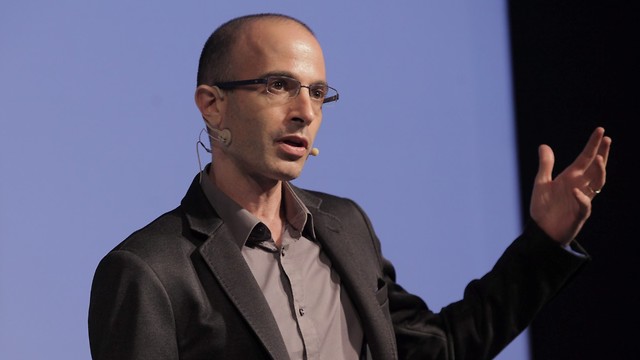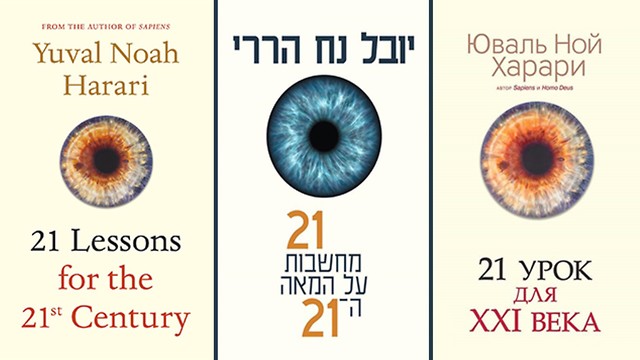

Russia edition of book by famed Israeli author skips Putin criticism but slams Trump
Translation of '21 Lessons for the 21st Century' by Yuval Noah Harari has significant differences to original, including flattering portrait of Crimea invasion, branding U.S. president 'worst culprit' for fake news; changes appear to have been approved by writer
The Russian translation of a book by famed Israeli author Yuval Noah Harari includes a series of specific changes that eliminate harsh criticism of Russian President Vladimir Putin and replace it with condemnation of U.S. President Donald Trump.
The changes to "21 Lessons for the 21st Century" appear to have been made with the knowledge and consent of the author, who also penned the bestselling books "Sapiens: A Brief History of Humankind" and "Homo Deus: A Brief History of Tomorrow."
The Russian edition of Harari's latest work also refers to the invasion of Crimea as "annexation," while in the English and Hebrew versions it is described as an occupation.
Some of the changes in the Russian version appear in a chapter titled "Post-Truth: Some Fake News Lasts Forever."
In the Hebrew edition, the chapter states: "In late February 2014, special forces of the Russian army invaded Ukraine and took over key installations in the Crimea Peninsula.
"The Russian government and President Putin himself repeatedly denied that they were Russian forces, claiming they were self-defense groups comprising Crimean residents who may have bought Russian equipment at local stores. Putin and his aides knew very well that they were uttering brazen lies."
The Hebrew edition continues: "Many Russian nationalists believe that the concept of Ukraine as a separate nation from Russia is a lie far greater than anything that President Putin said in his lofty mission to reunite all parts of Russia.
"Ukrainian citizens, external observers and professional historians will be horrified by this explanation. The claim that Ukraine does not exist as an independent state is a nuclear weapon in the Russian arsenal of lies."
A few paragraphs later the book reads: "Ukrainian nationalists would agree with Russian nationalists that there are 'fake countries' in the region, but Ukraine is not one of them. The fake countries are the Luhansk People's Republic and the Donetsk People's Republic, which the Russians invented to camouflage the invasion of Ukraine."
According to claims by Russian and Ukrainian readers on social media, and reported by the Russian website The Insider, the above sections were omitted from the Russian edition of the book, which was released by Russian publishing house Sindbad. Instead of the harsh criticism of Putin, a paragraph criticizing Trump has been added.
"Donald Trump is of course the main culprit," the Russian version of the book states. "The Washington Post, for example, has discovered that since Trump took office at the White House, he has made 6,000 false or misleading statements. In a speech in May 2018, Trump made 98 claims, 76 percent of which were false, misleading or unsupported by the evidence."
The text in Russian continues: "In response, Trump and his supporters regularly call the Washington Post, The New York Times, CNN and other media outlets 'liars,' and accuse them of spreading fake news aimed at discrediting Trump's term."
A request for clarification from Harari seems to suggest that the changes were made with the consent of the author.
"21 Lesson for the 21st Century focuses on the dangers of dictatorship, extremism and fanaticism," said a statement in Harari's name. "I very much hope that the book's ideas will reach diverse audiences around the world, including those living under undemocratic regimes.
In the English edition of the book there are examples that could exclude certain audiences or lead to censorship of the text by certain regimes. So I sometimes approve local adaptation of examples - but I never approve changes to the book's essential ideas."
The Sindbad publishing house had yet to respond to queries at the time of publication of this report.


















